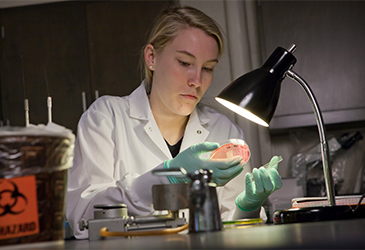What is Medical Laboratory Science?
What is Medical Laboratory Science?
Medical laboratory science is crucial to the practice of modern medicine. Clinicians depend on accurate laboratory data to diagnose diseases, while nurses, pharmacists and other health professionals rely on this information to plan or implement treatment and care for the individual patient. Billions of dollars are spent each year for tests performed in clinical laboratories with volumes expected to increase annually.
What Does a Medical Laboratory Scientist Do?
Medical Laboratory Scientists work with specialized instruments to obtain results that are both valid and meet high standards of accuracy, precision and quality control. They are also responsible for correlating and interpreting test data, assessing and improving existing laboratory test methods and designing, evaluating and implementing new methods.
Medical laboratory scientists are experts in the disciplines of Clinical Chemistry, Hematology, Coagulation, Urinalysis, Microbiology, Immunoserology, and Blood Banking. Increasingly they employ genetic/molecular diagnostics in their analyses.
The Well-Rounded Professional
A solid academic background in the sciences, expertise in all aspects of laboratory practice and the highest professional qualities are combined to develop a well-rounded professional. Having practiced the team concept throughout their course work, graduates apply these same principles to health care delivery, interacting with other health care professionals by consulting on test methods, interpreting results, and coordinating interdepartmental efforts (e.g., point-of-care testing).
Visit these sites for more information about the profession:
Learn about careers in medical laboratory science

